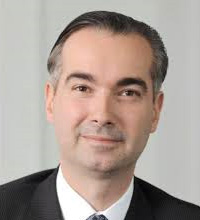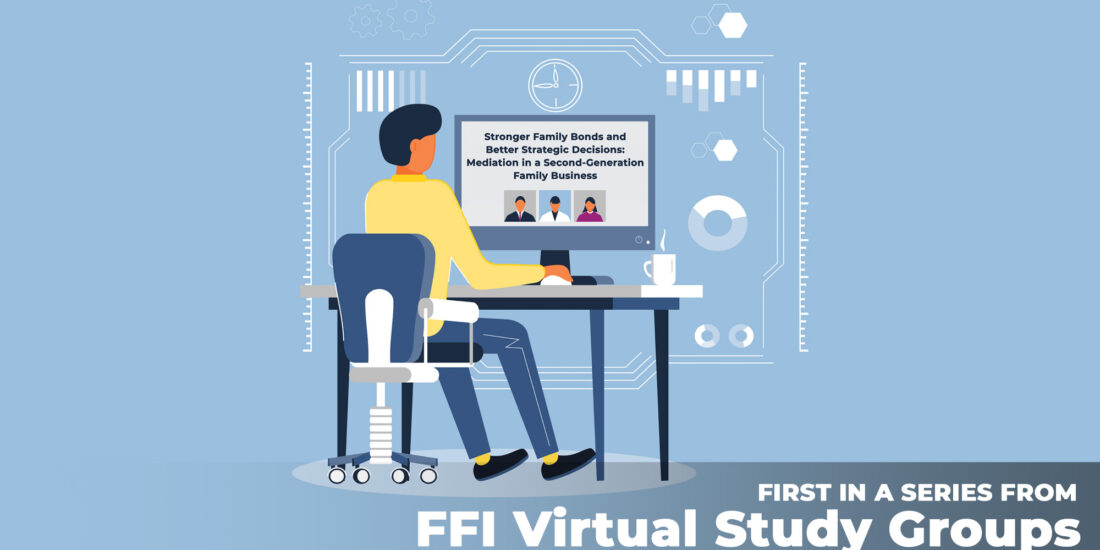As family advisors, we know the drill. We are called to the scene and get down to investigating what happened. There is smoke and despair in the air. Porcelain has been shattered. Family members are fuming between accusations and counter accusations. With most families, the common denominator is that family advisors are called in — post-event.
Let us look at an example.
Henry M., a successful entrepreneur, has built a sizeable family enterprise generating millions in profit. However, overnight he has had a crippling stroke, and doctors do not believe he will come out of it. While he had at times thought about the uncertain future, did he envisage such a helpless ending, so soon? No. Did he put in place the successors to lead his tremendously profitable firm? No. Now, as always, it is getting late. The sun is setting. His three grown children — an engineer, an accountant and a lawyer who always rebuffed the family trade — are now not averse to quantifying their share of inheritance. Henry’s wife stood shoulder to shoulder with him in building the family firm but is almost clueless on daily operations. In addition, there is also the non-family management, who believe they are now the only ones best positioned to take the business forward.
From here on, the usual dance begins. Everybody thinks he or she were best aligned with Henry and should don the successor mantle. Family members start questioning the value of non-family management in place. Do we replace the management with family members, and if so, who does what? The family is in an uncertain flux and seemingly trivial queries have hidden agendas that are sparking bigger firestorms.
At this moment, as family advisors, we can only wish that we had been called in earlier to put in motion the proper governance and succession. We could have helped Henry in good times prepare a power grid, where the electrical current propelled the business forward instead of negative currents to the remaining family members in times of crises.
With Henry incapacitated, it is now getting too hot to handle. With family vs management, the tension is palpating. With uncertainty on the future of the business, the family is poised to being torn apart too.
The daughter, who is an accountant by qualification and a shopaholic by reputation and has married a leading CPA, suggests that she manage the books with her husband to provide the financial oversight. Prima facie it’s a thoughtful gesture but nobody is willing to entertain the suggestion. The seeds of sibling rivalry are being planted in front of our eyes. In the past, in-laws were usually kept away from it all. The youngest lawyer progeny could stake a better professional claim at managing affairs in such crises as well. While it is simply chatter right now about distributing workloads, it has underlying ramifications regarding control, inheritance, compensation issues, etc. There are an innumerable number of potential crossed wires waiting to spark a bigger chain reaction!
As family advisors, we have seen that it starts out with awkward talks, like who can have access to corporate assets such as cars, houses and planes? And how often, and over the weekend? If the firstborn son, Adam the engineer, takes the helm, can he and his young family use the family plane to fly to Mallorca for the holidays? And how much remains for the other siblings and Henry’s wife? With Henry on his sick bed, the ineffective system of communication and decision-making of the past, is coming home to roost.
According to “Kin in the game” a 2010/2011 family business survey undertaken by PwC, more than half of its family business clients have argued about the future direction of the firm. Without an established dialogue culture, there will be trenches between family members and even family groups.
Let’s take a step back…
to see what family advisors could have helped with, in the ideal scenario. It all starts with the founder’s entrepreneurial values. Whether he is furthering young talents, puts himself first, or puts his family first — all of this could have been enshrined and clearly articulated from the beginning and the whole family and management would know what the values of the founder are.
In well-organised families the wealth owner takes it upon himself/herself to educate the next generations. The next generations need to be inspired to carry the torch and connect to the power house of the earlier generation. In not-so-well-organized families, the family advisors could be the needed solution. They could coach the founder on how to explain the wealth and its implications to the family. They could teach the family how to work together and be custodians of the wealth for a mutually shared vision or goal. The family vision is certainly the centre of gravity. It is the generator of power, even in unstable times for the family.
If the founder is a philanthropist, family advisors could have helped him/her put the money to good use in his/her lifetime. If the founder was more into personal materialistic wealth, vintage car or art collections, horses, or other luxuries such as yachts and planes – advisors would still do well to help the founder create an ownership structure. Maybe the endowment model could have been a good way to set the legacy of the family name.
Sibling rivalry could have been mitigated by getting the children involved in the family business from an early age so that they grow up with the family values, the family ethics code, the DNA. Alternatively, the creation of a family council with regular meetings (with minutes?) can create a sense of involvement and belonging for all ages and roles.
Another idea is the inclusion of a place for arbitration in the event of internal conflict within a family. This can be managed by separating family business from family life, i.e. family relationships should not be influenced by business issues.
Probably the most successful way to resolve family business issues is to escalate to a mutually agreed upon third party – someone who is benign but impartial, a person of respect and integrity. Such roles can be created unbeknownst to the holder of such a privileged position. It could be an uncle or the family financial director. Possibly the CFO or a former CEO or a trusted advisor
To return to Henry’s case
During the “good times” he could have taught his spouse and children how to build connections with each other as well as how to manage and prepare the grid when communication flow was solid. He could have shared his vision of how to deal with the future. In order to safeguard the power house, the family should understand electrical tensions can roast everyone in sight. Henry had time to do so, but now the onus also falls to the family advisors to suggest how to organise the firm and wealth so that his spouse, children and the management can enjoy the fruits from the tree planted by Henry,
As an aside, an electrifying suggestion doing the rounds these days is that parents should not shy away from spending their children’s inheritance. First, it’s fun for the parents, and secondly it emancipates the children, possibly allowing them to become self-reliant. One could compare it to enabling the children to have their own power house, instead of connecting to their parents. This is an attitude shared by some of the wealthiest people on this planet. We don’t know about measures in place to soothe conflict in these wealthy families but we can presume that there will be a greater probability of conflict. As soon as the sparks of disagreement fly, family members are the first ones to get burned. Preventing fire is so much better than fighting fire – whichever way the founder may wish to roll the dice!
About the contributor
 Ariel Sergio Goekmen, LL.M., is a member of the executive board of Schroder & Co Bank AG in Switzerland and responsible for the private banking location in Zurich. He is a member of STEP and can be reached at ArielSergio.Goekmen@Schroders.com.
Ariel Sergio Goekmen, LL.M., is a member of the executive board of Schroder & Co Bank AG in Switzerland and responsible for the private banking location in Zurich. He is a member of STEP and can be reached at ArielSergio.Goekmen@Schroders.com.





